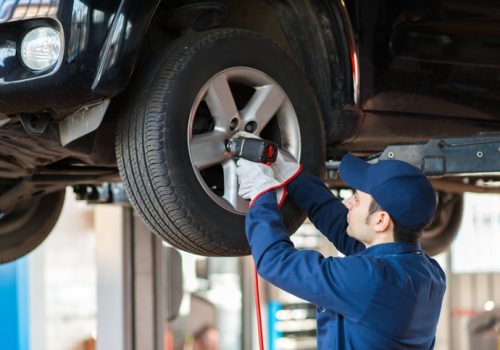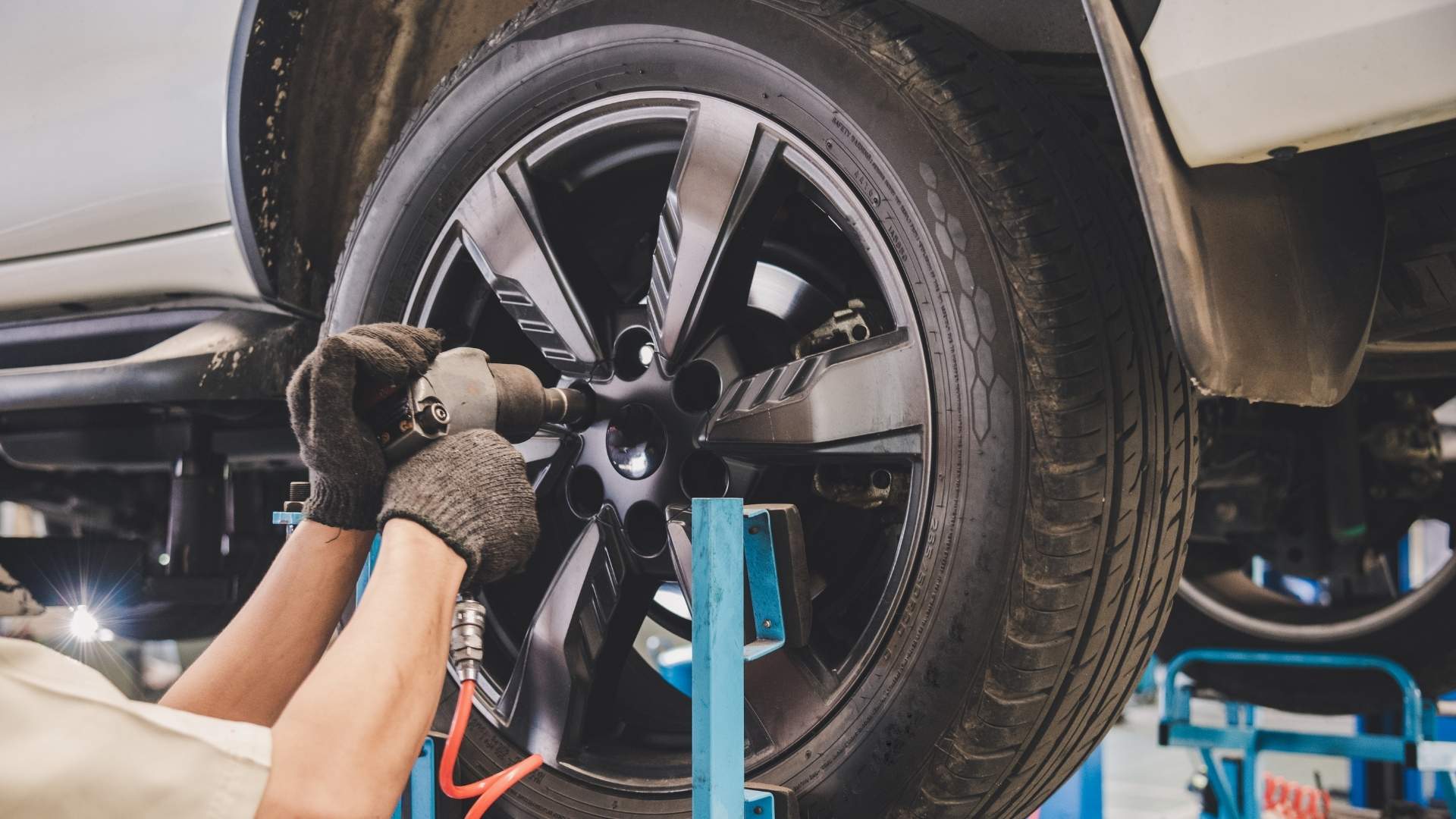Darwin’s diverse landscapes, from coastal roads to challenging terrains, make towing and hauling an integral part of vehicle operation in the region. Whether you’re towing a caravan, a trailer, or hauling heavy loads, the safety and reliability of your braking system are paramount. In this comprehensive guide, we’ll explore the unique challenges posed by towing and hauling in Darwin and provide a detailed breakdown of brake maintenance practices tailored to these specific conditions. From understanding common issues to proactive maintenance tips, let’s delve into the world of brake care for towing and hauling in the Northern Territory.
The Challenges of Towing and Hauling in Darwin
Increased Weight and Load Distribution
Towing and hauling inherently involve carrying additional weight. The added load puts extra strain on the braking system, requiring it to work harder to bring the vehicle to a stop. Proper load distribution becomes crucial to ensure balanced braking and prevent uneven wear on brake components.
Downhill Descents
Darwin’s landscapes often feature steep descents, especially in areas like the nearby hills. Descending with a heavy load or while towing requires effective brake management to prevent overheating and brake fade. Inadequate braking on downhill slopes poses safety risks and accelerates wear on brake components.
Variable Terrains
The Northern Territory offers a mix of terrains, from paved highways to off-road tracks. Vehicles engaged in towing and hauling must navigate these varying terrains, necessitating a robust braking system capable of adapting to different surfaces and conditions.
Extended Driving Distances
Towing and hauling often involve covering extended distances, whether for cross-country travels or long-haul deliveries. Extended driving puts additional stress on the braking system, making regular maintenance essential to ensure optimal performance over the long run.
Common Brake Issues in Towing and Hauling

- Brake Fade: Brake fade occurs when the braking system overheats, leading to a reduction in stopping power. Towing heavy loads or hauling on downhill descents can contribute to brake fade, compromising safety and effectiveness.
- Worn Brake Pads and Discs: The added weight from towing or hauling accelerates wear on brake pads and discs. Worn-out brake pads and discs can diminish braking efficiency and pose safety risks, particularly in demanding driving conditions.
- Brake Fluid Contamination: Towing and hauling can increase the temperature of the braking system, potentially leading to brake fluid contamination. Contaminated brake fluid compromises hydraulic efficiency and can result in brake system failure.
- Uneven Brake Wear: Improper load distribution or unbalanced towing setups can cause uneven wear on brake components. Uneven brake wear affects braking stability and requires prompt attention to prevent further damage.
- Increased Brake Dust: Towing and hauling generate more heat, leading to increased brake dust production. Excessive brake dust can accumulate on wheels and brake components, potentially affecting brake performance and requiring regular cleaning.
Brake Maintenance Checklist for Towing and Hauling
- Regular Inspections: Schedule frequent brake inspections to assess the condition of brake components. Regular checks help identify issues early, preventing potential brake failures and ensuring the reliability of the braking system.
- Load Distribution Checks: Before towing or hauling, ensure proper load distribution to avoid uneven wear on brake components. An improperly balanced load can lead to increased stress on certain wheels and affect braking stability.
- Brake Fluid Checks: Monitor brake fluid levels and quality regularly. Towing and hauling can elevate brake temperatures, increasing the risk of brake fluid contamination. Regular checks ensure that the brake fluid is at the recommended level and free from impurities.
- Brake Pad and Disc Inspection: Examine the brake pads and discs for signs of wear. Towing and hauling increase the workload on these components, necessitating more frequent inspections. Replace worn-out brake pads and address any issues with the brake discs promptly.
- Brake System Bleeding: Periodically bleed the brake system to remove air and maintain proper hydraulic function. Brake system bleeding is crucial for towing and hauling scenarios, where air buildup in the brake lines can affect braking efficiency.
- Check for Brake Fade: During long descents or heavy braking situations, be vigilant for signs of brake fade. If you notice a decrease in stopping power, it’s essential to take a break and allow the brakes to cool to prevent overheating.
- Wheel Alignment and Balance: Ensure that the wheels are properly aligned and balanced. Misaligned wheels or imbalanced tires can contribute to uneven brake wear, affecting braking stability and performance.
- Emergency Brake Testing: Test the emergency brake or handbrake to ensure it engages and disengages smoothly. The emergency brake is a crucial backup during parking and stationary situations, particularly when towing or hauling.
- Check for Brake Noise: Pay attention to any unusual noises when applying the brakes. Squeaking, grinding, or clicking noises may indicate worn-out brake pads, damaged discs, or other issues that require attention.
- Inspect for Brake Dust Accumulation: Regularly check for excessive brake dust accumulation on wheels and brake components. Clean any buildup to maintain optimal brake performance, especially in towing and hauling scenarios where heat generation is increased.
Proactive Brake Maintenance Tips for Towing and Hauling
Invest in Quality Braking Systems
Upgrading to a high-quality braking system specifically designed for towing and hauling is a strategic investment that pays off in performance and durability. These performance-oriented brake systems are engineered to handle the increased stress associated with towing heavy loads. They offer superior heat dissipation, ensuring that brakes remain effective even under the heightened demands of towing. The durability of these systems is critical for extended use, providing a reliable and long-lasting solution that stands up to the challenges of variable terrains and heavy loads.
Install Brake Controllers
When towing, the installation of brake controllers is essential for achieving proportional braking. Brake controllers effectively distribute braking force between the tow vehicle and the trailer, promoting balanced braking. This not only enhances the safety of towing but also reduces the wear on the tow vehicle’s brakes. Proportional braking ensures that both the tow vehicle and the trailer contribute appropriately to the braking effort, maintaining stability and efficiency during braking maneuvers.

Engine Braking on Downhill Descents
Implementing engine braking techniques during downhill descents is a savvy strategy to reduce reliance on the primary braking system. Engine braking, also known as compression release engine braking, involves using the engine’s compression to slow down the vehicle. By engaging engine braking during extended downhill drives, operators can mitigate the strain on the braking system, preventing overheating and brake fade. This technique is particularly effective in maintaining control and preserving brake performance in challenging terrains.
Proper Towing Equipment
The importance of properly installed and maintained towing equipment cannot be overstated. This includes hitches and brake controllers, which should be chosen based on compatibility with the vehicle and trailer. Ensuring that towing equipment is in optimal condition promotes safer towing practices and reduces the strain on the braking system. Regular inspections and maintenance of towing equipment are essential to prevent issues that could compromise the overall safety and efficiency of the towing setup.
Driver Training for Towing
Specialized training for drivers involved in towing and hauling operations is a proactive measure that significantly impacts brake wear and overall safety. Drivers should be well-versed in proper towing techniques, emphasizing controlled braking and effective load management. Understanding the dynamics of towing and the impact on the braking system enables drivers to make informed decisions, contributing to the longevity of brake components and ensuring a safe towing experience.
Cooling Systems for Brakes
Considering auxiliary cooling systems for brakes, especially when towing heavy loads, is a forward-thinking approach to brake maintenance. These systems are designed to dissipate heat more effectively, reducing the risk of brake fade. Brake fade occurs when excessive heat compromises the braking system’s performance. By installing cooling systems, operators can mitigate the impact of elevated temperatures, ensuring consistent and reliable brake performance under demanding towing conditions.
Follow Manufacturer Guidelines
Adhering to the manufacturer’s guidelines for towing capacity and recommended brake maintenance intervals is a fundamental practice for optimal performance and safety. Manufacturers provide specific recommendations for towing based on the vehicle’s design and capabilities. Following these guidelines ensures that the braking system is utilized within its intended parameters, reducing the risk of premature wear and potential issues. Regular adherence to recommended maintenance intervals also contributes to the overall safety and reliability of the towing setup.
Towing and hauling in Darwin’s challenging conditions demand a proactive approach to brake maintenance. By understanding the unique challenges posed by increased weight, downhill descents, and variable terrains, vehicle operators can implement a comprehensive brake care routine. Regular inspections, load management, and adherence to proactive maintenance tips contribute to the safety, reliability, and longevity of the braking system. Whether you’re a caravan enthusiast, a commercial hauler, or simply navigating Darwin’s diverse landscapes, prioritizing brake maintenance for towing and hauling ensures a secure and enjoyable driving experience.
Remember, a well-maintained braking system is not just a requirement for safety; it’s the key to unlocking the full potential of your towing and hauling adventures in the Northern Territory. Contact us today for expert advice and assistance in optimizing your vehicle’s braking system for the unique challenges of towing and hauling in Darwin. Your safety and driving experience matter to us, and we’re here to support you on the road.

